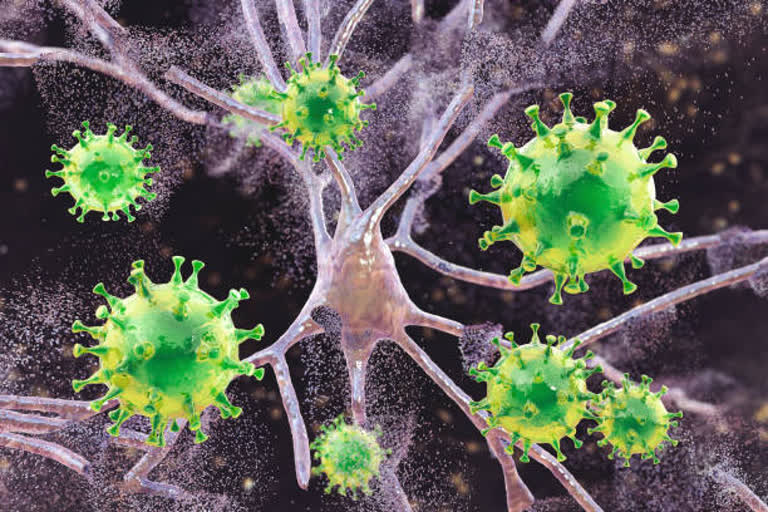Sydney: Research led by the University of Queensland (UQ) has found that Covid-19 activates the same inflammatory response in the brain as Parkinson's disease. The discovery identified a potential future risk for neurodegenerative conditions in people who've had Covid-19, but also a possible treatment. "We studied the effect of the virus on the brain's immune cells, 'microglia' which are the key cells involved in the progression of brain diseases like Parkinson's and Alzheimer's," said Professor Trent Woodruff.
The team grew human microglia in the laboratory and infected the cells with SARS-CoV-2, the virus that causes Covid-19. "We found the cells effectively became 'angry', activating the same pathway that Parkinson's and Alzheimer's proteins can activate in disease, the inflammasomes," Woodruff said in a paper published in Nature's Molecular Psychiatry journal.
The team included Dr Eduardo Albornoz Balmaceda from UQ's School of Biomedical Sciences, and virologists from the School of Chemistry and Molecular Biosciences. Dr Balmaceda said triggering the inflammasome pathway sparked a 'fire' in the brain, which begins a chronic and sustained process of killing off neurons.
Also read: Omicron BQ.1 and BQ.1.1 an expert answers three key questions about these new COVID variants
"It's kind of a silent killer, because you don't see any outward symptoms for many years," he noted. "It may explain why some people who've had Covid-19 are more vulnerable to developing neurological symptoms similar to Parkinson's disease." The researchers found the spike protein of the virus was enough to start the process and was further exacerbated when there were already proteins in the brain linked to Parkinson's.
"So if someone is already predisposed to Parkinson's, having Covid-19 could be like pouring more fuel on that 'fire' in the brain," Woodruff said. However, the study also found a potential treatment. The researchers administered a class of UQ-developed inhibitory drugs which are currently in clinical trials with Parkinson's patients.
"We found it successfully blocked the inflammatory pathway activated by Covif-19, essentially putting out the fire," Dr Balmaceda said. The drug reduced inflammation in both COVID-19-infected mice and the microglia cells from humans, suggesting a possible treatment approach to prevent neuro-degeneration in the future. "Further research is needed, but this is potentially a new approach to treating a virus that could otherwise have untold long-term health ramifications," said Woodruff. (IANS)
(This story has not been edited by ETV Bharat and is auto-generated from a syndicated feed.)



